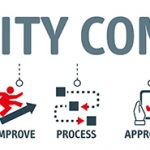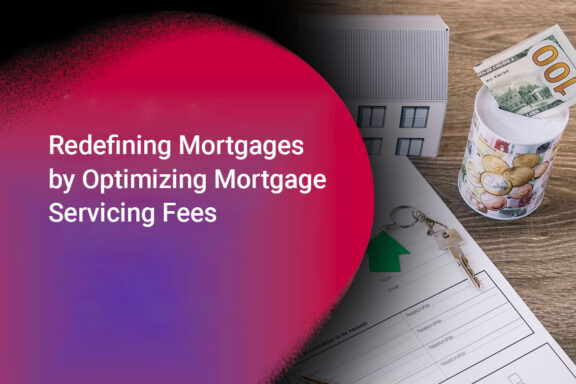The Covid-19 pandemic hit the mortgage industry in many ways, causing finance and opportunity loss for lenders. However, the crisis also induced a sudden spike in the popularity of the reverse mortgage product category. One of the factors that contributed substantially to this phenomenon is the depleting income of people, especially the senior citizens. This has led to an unexpected and potentially massive opportunity for reverse mortgage companies in the post-pandemic era.
Home Equity Conversion Mortgage (HECM), the most common reverse mortgage program in the US, gives citizens of 62 years or older access to a major portion of their home’s value with no mortgage payment or without the need to give up the ownership of the home. No mortgage payments are required as long as even one borrower lives in the home and pays the due property charges. Today, most industry leaders are confident about their readiness to meet the needs of seniors while the rest have started preparations for the upcoming demands in reverse mortgage operations.
What’s There for Lenders in Reverse Mortgage?

Firstly, reverse mortgage is a kind of home loan that carries most or all the financial obligations and elements of a typical home loan. These include accrued interest amount on the borrowed money, loan origination fees, etc. Also, lenders oftentimes sell their loans to secondary investors in the market on the payment of a certain premium for the loan. This allows lenders to recoup capital that can further be converted to new loans.
| Finance of America reported $53 million as pre-tax income in the second quarter of 2021 just from the reverse mortgage segment. This figure was up by almost 61% year-over-year and nearly 18% from the previous fiscal period. |
Prerequisites to Smooth Reverse Mortgage Lending
Reverse mortgage lending offers new business opportunities to lenders, particularly in their attempt to recover from the effects of the pandemic. But there are a few critical requirements to meet before a lender commences operations in reverse lending. For instance, in the Commonwealth, reverse mortgage loans should be as per the programs that the Commissioner of Banks has reviewed and approved. Such mortgage programs that are submitted for the approval of the Division should be as per the requirements of M.G.L. c. 167E, §7. Here are a few other conditions that reverse mortgage lenders must meet.
| A large mortgage loan servicing organization recently reported pre-tax income from reverse originations whose rate, on average, was six times that of traditional mortgages. |
Required Borrower Protection
- It’s mandatory for borrowers to participate in a reverse mortgage counselling session that is approved by the Commonwealth’s Executive Office of Elder Affairs. The receipt of the Counseling certificate from every borrower must be verified.
- After a consumer accepts a commitment, there is a seven-day ‘cooling-off’ period. During this time, the consumer cannot be asked to proceed with or close the loan transaction.
- There must be plain language disclosures for specific mortgage terms.
- There cannot be any prepayment penalties or restrictions.
- All contingencies that can force a sale of the mortgaged property must be disclosed and acknowledged.
- There must be a disclosure statement about a reverse mortgage loan having estate and tax planning consequences that can affect eligibility for government benefits.
License Requirements
- Besides the approval of its reverse mortgage program under statutory provisions, the lender must either possess a valid mortgage lender license or be eligible for an exemption from mortgage licensing.
- Entities that intend to broker a reverse mortgage loan must hold a mortgage broker license or must qualify for exemptions in the Commonwealth.
- Such entities are limited to acting in the capacity of a broker for reverse mortgage programs that the Commissioner of Banks approves.
- Loan originators of reverse mortgage loans must be licensed according to G. L. c. 255F that’s added by Chapter 206 of Acts of 2007.
Reverse Mortgage Program Requirements

- Banks, lenders, and credit unions that partner with Homeowner Options for Massachusetts Elders (HOME) don’t need any separate approval of reverse mortgage loan programs.
- Banks, lenders, and credit unions closing a loan in their name must file for approval of reverse mortgage loan programs.
- As per Chapter 206 of the Acts of 2007, every mortgage and assignment of mortgage that’s secured by any residential property, with a mortgage broker involved, must have on it the basic details of the mortgage broker, such as the name, address, and license number.
- Mortgage loans that have been closed on or after July 1, 2008, should contain the basic details of the mortgage broker, such as the name, address, and license number, if applicable.
- Creditors must produce all disclosures as per the Division’s 209 CMR 32.33 regulation and Regulation Z, which is the Truth in the Lending Act’s implementing regulation. All such disclosures should be provided at least three business days before a closed-end transaction’s consummation or an open-end transaction’s first transaction.
Reverse Mortgage is a profitable deal for both the borrower and the lender. Lenders that are making efforts to bounce back from the Covid-induced economic disaster must leverage reverse mortgages. However, they must be adequately prepared to tackle the operational challenges and regulations pertaining to reverse mortgages, particularly the ones mandated in response to the Covid-induced exceptions. In this regard, an expert reverse mortgage services firm that offers back-office support for processes such as mortgage loan processing support, loan closing, and other mortgage services can help lenders mitigate the costs and risks associated with all reverse mortgage loans.
Who We Are and Why Our Expertise Matters?
Expert Mortgage Assistance (EMA) is known for its tailored service models for reverse mortgage operations that are adopted by mortgage lenders around the world. We have a dedicated team of mortgage specialists to handle all kinds of operational demands starting from the review of loan applications to document verification and loan closing while mitigating all business risks. As a trusted name in reverse mortgage services, we have constantly delivered gains such as increased market share, higher revenue, and reduced costs to our clients.







No Comments